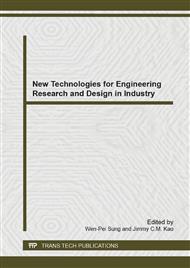p.938
p.942
p.946
p.950
p.954
p.958
p.962
p.965
p.970
A Combined Particle Swarm Optimization-Wavelet Transform Based Strategy for Power Management of PEM Fuel Cell Powered Hybrid System
Abstract:
This paper proposed a combined particle swarm optimization-wavelet-transform based power management for PEM fuel cell powered hybrid electric vehicles which including a PEM fuel cell, a lithium-ion battery and an ultra-capacitor. This combined particle swarm optimization-wavelet-transform based frequency decoupling power management strategy is capable of identifying the high frequency of the ultra-capacitor, the PEM fuel cell low frequency and the lithium-ion battery medium frequency power demand of the hybrid systems. The hybrid system efficiency and life cycle can be extended. We made simulation by using the SimpowerSystem of MATLAB, the results shows the combined particle swarm optimization-wavelet transform based strategy for power management is validated.
Info:
Periodical:
Pages:
954-957
Citation:
Online since:
June 2014
Authors:
Price:
Сopyright:
© 2014 Trans Tech Publications Ltd. All Rights Reserved
Share:
Citation:


